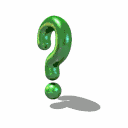cute
About
Thursday 29 November 2012
Question words
Question words
WHO
WHO is only used when referring to people. (= I want to know the person)
- Who is the best football player in the world?
- Who are your best friends?
- Who is that strange guy over there?
WHERE
WHERE is used when referring to a place or location. (= I want to know the place)
- Where is the library?
- Where do you live?
- Where are my shoes?
WHEN
WHEN is used to refer to a time or an occasion. (= I want to know the time)
- When do the shops open?
- When is his birthday?
- When are we going to finish?
WHY
WHY is used to obtain an explanation or a reason. (= I want to know the reason)
- Why do we need a nanny?
- Why are they always late?
- Why does he complain all the time?
Normally the response begins with "Because..."
WHAT
WHAT is used to refer to specific information. (= I want to know the thing)
- What is your name?
- What is her favourite colour?
- What is the time?
WHICH
WHICH is used when a choice needs to be made. (= I want to know the thing between alternatives)
- Which drink did you order – the rum or the beer?
- Which day do you prefer for a meeting – today or tomorrow?
- Which is better - this one or that one?
HOW
HOW is used to describe the manner that something is done. (= I want to know the way)
- How do you cook paella?
- How does he know the answer?
- How can I learn English quickly?
With HOW there are a number of other expressions that are used in questions:
How much – refers to a quantity or a price (uncountable nouns)
- How much time do you have to finish the test?
- How much is the jacket on display in the window?
- How much money will I need?
How many – refers to a quantity (countable nouns)
- How many days are there in April?
- How many people live in this city?
- How many brothers and sister do you have?
How often – refers to frequency
- How often do you visit your grandmother?
- How often does she study?
- How often are you sick?
How far – refers to distance
- How far is the university from your house?
- How far is the bus stop from here?
Saturday 24 November 2012
Either/or and neither/nor
Either/or and neither/nor - beware double negatives
'Neither' is used with 'nor'. (This pairing plays a negative role in the sentence - explained below.)
'Either' is used with 'or'. (Sometimes, the word 'either' is omitted.)




Either/Or and Neither/Nor
The pairings either/or and neither/nor can be used to group two people or things. Although not a major grammatical error, the grouping of more than two things is frowned upon by some style conventions.Examples:
 Neither the forwards nor the scrumhalf, all of whom were within 10 metres
Neither the forwards nor the scrumhalf, all of whom were within 10 metresof the tackle, nor the crowd appealed for a foul.
 I could neither laugh nor cry.
I could neither laugh nor cry.  Either the clerk or the secretary has the keys to the Rover.
Either the clerk or the secretary has the keys to the Rover. (Note: "has" is correct / "have" would be wrong / See the lesson Either/Or Singular or Plural?)
 The clerk or the secretary has the keys to the Rover.
The clerk or the secretary has the keys to the Rover.  He did not find the key either on or under the mat.
He did not find the key either on or under the mat. Beware Double Negative
The pairing neither/nor plays a negative role in the sentence. Be careful not to use a double negative. Adam did not find the key neither on nor under the mat.
Adam did not find the key neither on nor under the mat. (This is a double negative.)
 He did not mention neither the flooding nor the landslide.
He did not mention neither the flooding nor the landslide. (This is a double negative.)
 He mentioned neither the flooding nor the landslide.
He mentioned neither the flooding nor the landslide.  He did not mention either the flooding or the landslide.
He did not mention either the flooding or the landslide. 
Full Stops (Periods) in Contractions
Only use a full stop (period) at the end of a contraction if its last letter is different to the last letter of the whole word.Examples:
 Mr (contraction of Mister)
Mr (contraction of Mister)  Revd (contraction of Reverend)
Revd (contraction of Reverend)  Rev. (also a contraction of Reverend)
Rev. (also a contraction of Reverend)  para. (contraction of paragraph)
para. (contraction of paragraph)  paras (contraction of paragraphs)
paras (contraction of paragraphs)  Dr. (contraction of Doctor; r is the last letter of Dr and Doctor)
Dr. (contraction of Doctor; r is the last letter of Dr and Doctor)  para (contraction of paragraph; last letters are different -
para (contraction of paragraph; last letters are different -full stop required)
 The theory is supported by Prof. Munro.
The theory is supported by Prof. Munro. Thursday 22 November 2012
To be - Positive Sentences & Contractions
To be - Positive Sentences
& Contractions
Full Forms of the verb to be:
I
|
am
|
a student.
|
He
|
is
|
a teacher.
|
She
|
is
|
a journalist.
|
It
|
is
|
a book.
|
We
|
are
|
mechanics.
|
You
|
are
|
pilots.
|
They
|
are
|
policemen.
|
Well, try out these exercises:-
Click the URL below to try out the exercises
Wednesday 21 November 2012
Puntuation
Punctuation is the system of symbols (. , ! ? " - : etc) that we use to separate sentences and parts of sentences, and to make their meaning clear. Each symbol is called a "punctuation mark".
The Value of Punctuation
An English teacher wrote these words on the board:
woman without her man is nothing
The teacher then asked the students to punctuate the words correctly.
The men wrote the top line. The women wrote the bottom line.
See , Punctuation is so interesting !!!
Subscribe to:
Posts (Atom)






















